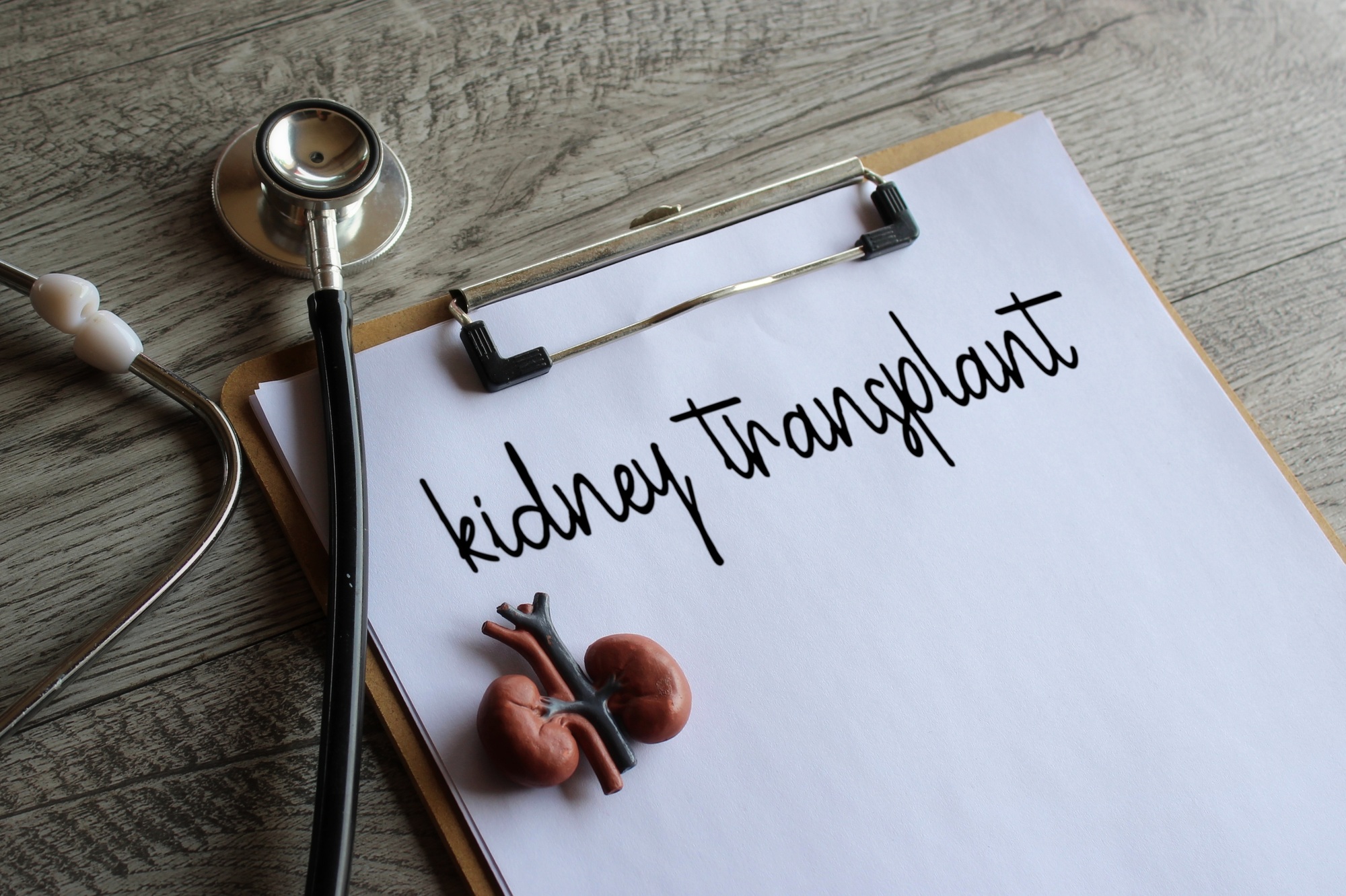When faced with kidney failure, a kidney transplant can be a life-saving procedure. For many individuals, this offers not just an extension of life but a significant improvement in quality. But what exactly does the process entail, and how can patients prepare for it? Navigating the complexities of a kidney transplant requires a comprehensive understanding of the entire procedure, from initial diagnosis to post-operative care. In this article, we will walk you through the entire process, from understanding kidney failure to the surgery itself and recovery.
Expert Kidney Transplant Support at Kidney MD
At Kidney MD, we provide comprehensive kidney transplant support, guiding patients through every step of the transplant journey. From initial kidney failure evaluation to post-transplant care, our team of nephrology specialists works closely with patients to assess eligibility, coordinate with transplant centers, and optimize overall health before surgery. We offer detailed pre-transplant evaluations, including blood tests, imaging, and compatibility assessments, ensuring patients receive the best possible match for a successful transplant. Our goal is to make the kidney transplant process as smooth as possible, equipping patients with the information and medical support they need to make informed decisions about their care.
What is Kidney Failure?

Before diving into the transplant process, it’s important to understand kidney failure. Our kidneys are vital organs that filter waste and excess fluids from the blood, playing a critical role in maintaining the body’s internal equilibrium. When they lose this ability, waste can build up, leading to serious health issues that can affect nearly every part of the body. Understanding kidney failure is the first step in recognizing the urgency and potential benefits of a transplant.
Causes of Kidney Failure
Kidney failure can result from various causes, including chronic conditions like diabetes and hypertension, as well as acute injuries or infections. Diabetes and hypertension are particularly insidious as they can damage the kidneys over time, often without noticeable symptoms until significant damage has occurred. Other potential causes include glomerulonephritis, polycystic kidney disease, and prolonged obstruction of the urinary tract. Understanding the underlying cause is crucial in managing kidney health and assessing the need for a transplant. This knowledge can also guide treatment options and preventive measures for those at risk.
Symptoms of Kidney Failure
Common symptoms of kidney failure include fatigue, swelling in the legs and feet, shortness of breath, and confusion. These symptoms arise because waste products and excess fluid build up in the body when the kidneys fail to function properly. Other symptoms might include decreased urine output, persistent itching, and high blood pressure, which can further complicate health. These symptoms can significantly impact quality of life, making timely medical intervention critical. Early detection through regular check-ups can help manage symptoms more effectively and delay the progression of kidney disease.
Kidney Transplant Overview
A kidney transplant involves replacing a diseased kidney with a healthy one from a donor. This procedure can greatly improve a patient’s quality of life and is often considered when other treatments, like dialysis, are not suitable or effective. Transplants offer the potential for a more normal lifestyle, free from the constraints of regular dialysis sessions. However, it is not a cure, but rather a treatment that requires ongoing medical care and lifestyle adjustments.
Kidney Transplant Requirements
To be eligible for a kidney transplant, patients must meet certain criteria. This often includes being in good overall health, having a compatible donor, and being free from active infections or cancers. A thorough medical evaluation is conducted to ensure that a transplant is the best option. This evaluation involves a series of tests and consultations with specialists to assess the patient’s overall health status and potential risks. The transplant team also considers psychological readiness and support systems, as these are vital for post-transplant success.
The Kidney Transplant Procedure

The kidney transplant surgery itself is a complex procedure that requires a skilled medical team. Here’s a step-by-step overview:
Pre-Surgery Preparations
Before the surgery, patients undergo a series of tests to confirm compatibility with the donor kidney. This includes blood tests, imaging studies, and possibly a biopsy to ensure the best possible match and minimize the risk of rejection. Patients are also advised to maintain a healthy lifestyle to optimize surgery outcomes. This may involve dietary adjustments, cessation of smoking, and controlling blood pressure and blood sugar levels. Psychological preparation is equally important, as understanding the procedure and having realistic expectations can significantly impact recovery.
The Surgical Process
The actual surgery usually takes about three to four hours. The surgeon places the new kidney in the lower abdomen and connects it to the blood vessels and bladder. The diseased kidneys are typically left in place unless they cause complications, as removing them can increase the risk of surgical complications. The surgical team works meticulously to ensure proper blood flow to the new kidney, which is crucial for its function. Advances in surgical techniques and post-operative care have significantly improved success rates and outcomes for patients undergoing this life-changing procedure.
Post-Surgery Care
After the procedure, patients are closely monitored in the hospital for several days. Medical staff will watch for signs of infection or rejection, as these are the most critical complications in the immediate post-operative period. Patients receive medications to suppress the immune system and prevent the body from rejecting the new kidney. This immunosuppressive therapy is tailored to each patient to balance preventing rejection with minimizing side effects. Patients are educated on recognizing signs of potential complications and the importance of adhering to their medication regimen.
Personalized Pre- and Post-Transplant Care
Preparing for a kidney transplant requires careful medical and lifestyle adjustments, and at Kidney MD, we create personalized treatment plans tailored to each patient’s unique health status. Our specialists monitor and manage kidney function, help control hypertension and diabetes, and provide nutritional guidance to optimize transplant success. After the transplant, we ensure continuous post-surgical care, adjusting medications, monitoring for signs of rejection, and providing long-term wellness strategies to keep the transplanted kidney functioning effectively. Through regular follow-ups and ongoing support, we help patients transition smoothly into their post-transplant life.
Recovery After Kidney Transplant
Recovery from a kidney transplant varies from person to person, but generally, patients can expect a gradual return to normal activities. This period is crucial for ensuring the success of the transplant and involves careful monitoring and adherence to medical advice.
Immediate Post-Operative Care
In the weeks following surgery, patients must attend regular check-ups to ensure the new kidney is functioning properly. These appointments allow healthcare providers to adjust medications and address any early signs of complications. They will need to adhere to a strict medication regimen to prevent rejection, which requires diligence and understanding of their treatment plan. Patients are also advised to avoid certain activities and follow dietary restrictions to aid recovery. Emotional support and counseling can be beneficial during this time, as adjusting to life post-transplant can be challenging.
Long-Term Recovery
Long-term recovery involves regular health monitoring, maintaining a balanced diet, and possibly lifestyle changes to support kidney health. It’s crucial to follow medical advice and report any unusual symptoms to healthcare providers promptly. Patients are encouraged to engage in regular physical activity, as it can improve overall health and reduce the risk of cardiovascular disease, which is higher in transplant recipients. Support groups and educational resources can also provide invaluable guidance and encouragement during this phase, helping patients maintain a positive outlook and commitment to their health.
Maintaining Kidney Health Post-Transplant

Maintaining the health of the transplanted kidney is crucial for long-term success. This involves regular follow-ups with healthcare providers, adhering to medication schedules, and making healthy lifestyle choices. Patients must take an active role in their health care, as this can greatly influence the longevity of the transplant.
Diet and Exercise
A balanced diet and regular exercise play a significant role in maintaining kidney health. Patients are often advised to limit salt intake, avoid alcohol, and incorporate physical activities that suit their health status. A diet rich in fruits, vegetables, lean proteins, and whole grains supports overall health and reduces the risk of complications. Exercise not only helps maintain a healthy weight but also enhances cardiovascular health and reduces stress. Tailoring these lifestyle changes to individual needs and abilities is essential for sustainable long-term health.
Monitoring and Prevention
Regular blood tests and check-ups are essential to monitor kidney function and detect any signs of rejection early. These appointments help healthcare providers make necessary adjustments to treatment and catch potential issues before they become serious. Patients should also be vigilant about avoiding infections and managing other health conditions like diabetes or hypertension. This proactive approach includes vaccinations, hand hygiene, and regular communication with healthcare providers. Education and awareness about the signs of complications empower patients to seek timely medical attention, which is critical for maintaining transplant health.
Challenges and Considerations
While kidney transplants offer many benefits, they also come with challenges. The risk of organ rejection, side effects from medications, and the emotional toll of ongoing medical care are significant considerations. Patients must be prepared to navigate these challenges with the support of their healthcare team and loved ones.
Dealing with Rejection
Organ rejection is a major concern for transplant recipients. It’s crucial to recognize early signs, such as fever, pain, or changes in urine output, and seek immediate medical attention. Early intervention can often reverse rejection episodes, but this requires adherence to medication and regular monitoring. Patients should be educated about the different types of rejection and the importance of maintaining open communication with their healthcare providers. Understanding and addressing the psychological impact of potential rejection can also help patients cope with the stress and anxiety associated with transplant care.
Emotional and Psychological Impact
Undergoing a kidney transplant can be emotionally taxing. Patients may experience stress or anxiety related to the surgery and its aftermath. Support from healthcare professionals, family, and support groups can be invaluable. Counseling and therapy can help address feelings of depression or anxiety, which are not uncommon after such a major medical event. Creating a strong support network and engaging in activities that promote mental well-being can significantly enhance the recovery experience. Educating loved ones about the process and potential challenges can also foster a supportive environment that benefits both the patient and their family.
Long-Term Kidney Health and Rejection Prevention
Successful kidney transplants require lifelong medical monitoring, and Kidney MD is dedicated to helping patients maintain the health of their new kidney. We offer comprehensive immunosuppressive therapy management, ensuring that each patient’s medication regimen is carefully adjusted to prevent rejection while minimizing side effects. Our team also focuses on preventive care, including monitoring for infections, managing blood pressure, and providing education on kidney-friendly diets and healthy lifestyles. With our expert nephrology team and patient-centered approach, Kidney MD is committed to ensuring transplant recipients enjoy the best possible quality of life.
For those exploring kidney transplant options, the National Kidney Registry (NKR) provides valuable resources on finding a compatible donor, paired donation programs, and transplant success stories. Learn more about how NKR can help connect patients with life-saving kidney transplants by visiting their website:
🔗 National Kidney Registry – Kidney Transplant Information
Conclusion
Understanding the kidney transplant process can help patients and their families make informed decisions and prepare adequately for the journey ahead. While the procedure offers hope for a better quality of life, it requires careful consideration and commitment to post-operative care. With the right support and information, patients can navigate this life-changing process with confidence. The journey does not end with the surgery; it is an ongoing process that involves active participation in maintaining health and well-being. Embracing this challenge with a positive mindset and a proactive approach can lead to a successful and fulfilling post-transplant life.

